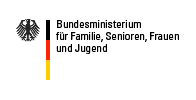Economy
Economy
The German economic order is based on the idea of the social market economy. Economic policy is intended to push through politically defined economic and social goals by means of various measures, which would not be guaranteed in an autonomous economic process, such as general access to education. The normative basis for economic policy actions is the Stability Act of 1967. This aims for a high level of employment, stability in price levels, balanced foreign trade and continual economic growth.
Today, the economy is often subjected to radical processes of change. It is developing from production to reproduction, from industry to services, from application to information and communication. At the same time, social networks are stretched to their limits. So economic policy and economic action are confronted with great challenges.
GM compels the answering of questions to do with the economy from a gender perspective as well, and often the raising of further questions. It then becomes clear that the “economy” rests on a shadow economy. As well as formal economic activity there is informal economic production which is not included in the calculation of the gross domestic product. It is the “care economy”, unpaid work in private households. This informal sector is still a blind spot between economy and politics. The market insists on externalizing costs into work in household and family and into the “leisure time” of consumers. Thus, for example, it is assumed in the case of full-time jobs that “someone else”, i.e. usually women, is doing private jobs such as cleaning the house, seeing to official business or looking after children.
From the perspective of gender equality between women and men, the indirect costs of gender inequality are also economically interesting. Due to the unequal participation of men and women in public economic life, resources are wasted which could contribute to bringing in new perspectives to economic policy and using them. It contradicts every economic logic to give women a good education and training and then implicitly to exclude them from economic life by clinging to outdated gender role attributions. Nonetheless, the targeted promotion of equal opportunities is still voluntary, which can lead to stagnation or reduction of the relevant measures in times of economic recession.
Here you can find a selection of examples of gender aspects, which are important in the area of the economy.
Today, the economy is often subjected to radical processes of change. It is developing from production to reproduction, from industry to services, from application to information and communication. At the same time, social networks are stretched to their limits. So economic policy and economic action are confronted with great challenges.
GM compels the answering of questions to do with the economy from a gender perspective as well, and often the raising of further questions. It then becomes clear that the “economy” rests on a shadow economy. As well as formal economic activity there is informal economic production which is not included in the calculation of the gross domestic product. It is the “care economy”, unpaid work in private households. This informal sector is still a blind spot between economy and politics. The market insists on externalizing costs into work in household and family and into the “leisure time” of consumers. Thus, for example, it is assumed in the case of full-time jobs that “someone else”, i.e. usually women, is doing private jobs such as cleaning the house, seeing to official business or looking after children.
From the perspective of gender equality between women and men, the indirect costs of gender inequality are also economically interesting. Due to the unequal participation of men and women in public economic life, resources are wasted which could contribute to bringing in new perspectives to economic policy and using them. It contradicts every economic logic to give women a good education and training and then implicitly to exclude them from economic life by clinging to outdated gender role attributions. Nonetheless, the targeted promotion of equal opportunities is still voluntary, which can lead to stagnation or reduction of the relevant measures in times of economic recession.
Here you can find a selection of examples of gender aspects, which are important in the area of the economy.
erstellt von Administrator
—
zuletzt verändert:
02.01.2010 20:07





